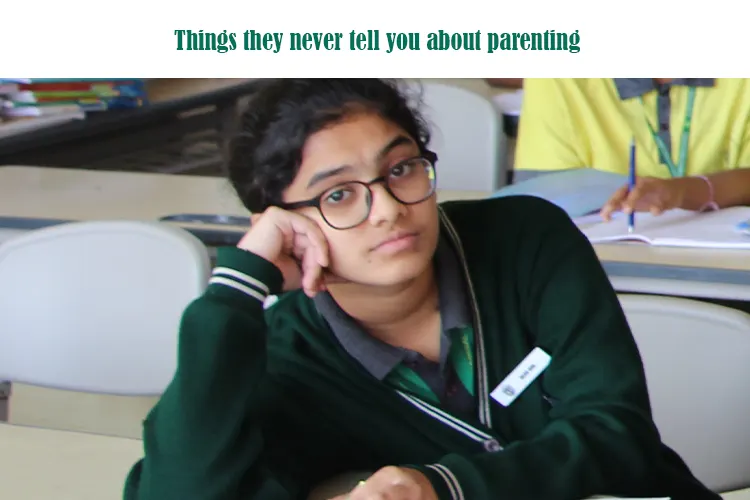Becoming a parent is one of life’s most profound transformations. You prepare, read books, attend classes, and talk to other parents. But even with all that, no one tells you everything—especially the daily emotional shifts, the mental and physical toll, and the quiet victories that go unseen. Whether you’re a new parent, a teacher guiding young families, or an education counsellor offering support, this piece uncovers the raw realities of parenting that often go unspoken.
The hidden mental load of parenting
The “mental load” is the invisible weight parents—especially mothers—carry each day. It’s not managing diapers and doctor appointments. It’s also when the immunization is due, tracking school projects, planning meals that align with nutrition guidelines, and wondering if your child is emotionally okay after a tough day.
This load doesn’t show up on to-do lists, yet it’s constant and exhausting. Many new parents express surprise at how emotionally draining it is to always be the one “on.” It isn’t about who does what—it’s about who remembers what needs to be done. And when no one talks about it, it becomes isolating.
Coping with sleep deprivation as a new parent
Sleep deprivation is more than being tired—it’s cognitive fog, memory loss, irritability, and even mild hallucinations. It’s a real health issue, and it’s completely normalized in parenting culture.
Most new parents describe the early months as a blur. You don’t lose sleep—you lose time, rhythm, and often, parts of yourself. The struggle intensifies when both partners are working and attempting to balance childcare at night with professional life during the day.
There’s no perfect solution, but small actions help: rotating night duties, creating a predictable bedtime routine, or even taking 20-minute power naps. Most importantly, recognizing that exhaustion is valid—and that asking for help is not weakness.
Parenting guilt and the comparison trap
Guilt is one of parenting’s most constant companions. Am I too strict? Too lenient? Did I praise them enough today? Should I have chosen a different school? Did I mess them up when I lost my patience?
Social media fuels this guilt. You see posts about children reading fluently at age three, kids baking muffins independently, or families traveling internationally with toddlers. It’s easy to feel like you’re not doing enough.
But most of what you see is a highlight reel. Real parenting is messy, uncertain, and personal. Every child is different. Trust your process, and more importantly, your bond with your child.
You’re not who you were – and that’s okay
Parenting changes you. It shifts your identity, priorities, even your sense of self. Career paths pause or pivot. Hobbies fade. Friends without kids grow distant. You grieve your “old life” and wonder if it’s selfish to miss it.
But change doesn’t mean loss. It means evolution. Your current identity holds new wisdom, resilience, and emotional capacity. Reclaiming time for yourself whether it’s reading, meditating, working out, or even scrolling memes in peace is not indulgent; it’s necessary.
Discipline or connection? Finding the balance
Discipline isn’t about punishment. It’s about teaching children emotional regulation, boundaries, and empathy. Yet, during tantrums, broken routines, or screen-time battles, it’s easy to revert to yelling or bribing.
The secret? Connection. A child who feels emotionally safe is more open to learning. Instead of saying “stop crying,” try “I see you’re upset—do you want to talk or sit together?”
Use natural consequences, visual cues, and consistent language. Kids thrive on routine and fairness. Parenting experts and progressive schools increasingly emphasize emotional intelligence over obedience.
When and why to seek support from teachers and counsellors
Modern parenting requires a community—and your child’s school is a crucial part of that. Teachers and education counselors aren’t only academic guides; they help you decode behavior changes, identify emotional needs, or suggest age-appropriate strategies.
If your child seems withdrawn, overly aggressive, or anxious, don’t wait. A teacher notices what you can’t. Counsellors work with both parent and child to co-create supportive frameworks.
Workshops, parent-teacher meetings, and guidance sessions are immensely helpful. Many schools today prioritize parent wellbeing alongside student development. Don’t hesitate to initiate the conversation.
Why choosing DPS Warangal CBSE school the best choice for parents
Choosing the appropriate school for a child is one of the most important decisions parents make. In India, this decision is often more than academic, covering values, culture, and development as well.
For parents considering CBSE schools in Warangal, DPS Warangal stands out with its academic brilliance, well-roundedness, and reputation fostered over generations. Parents tend to start thinking of DPS admission at an early stage due to the school’s proven track record in providing both academic rigor and emotional nurturing.
It is what makes DPS Warangal stand out is its collaborative environment. Teachers stay in touch with parents constantly, and counsellors guide students to facilitate easy academic and personal adjustment. Not only intellectual development but also empathy, leadership, and resilience are fostered in the school atmosphere—skills necessary in the modern world.
Parents also appreciate the open and supportive DPS admission process that demonstrates respect towards the ambitions of every family. With this blend of efficient academic uniformity, all-around development, and civic trust, DPS Warangal is a top preference among CBSE schools in Warangal.


